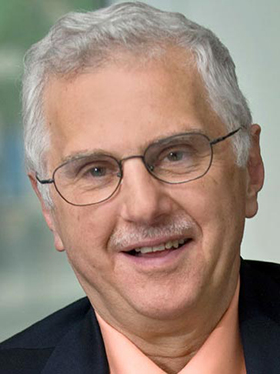Meet the Honoree: Bruce M. Alberts, PhD, Recipient of the 2020 John Edward Porter Legacy Award

As Research!America prepares for our 24th Advocacy Awards Dinner, we want readers to learn more about our award recipients. We are continuing our Tuesday series leading up to the March 11 event. Please meet Dr. Bruce Alberts, recipient of the 2020 John Edward Porter Legacy Award, generously supported by Ann Lurie.
Bruce M. Alberts, PhD
Chancellor’s Leadership Chair in Biochemistry and Biophysics for Science and Education, University of California, San Francisco
When did you know you were an advocate for scientific research and innovation?
I think that, like a great many others in my generation, I was first inspired to pursue science as a teenager by reading The Microbe Hunters by Paul de Kruif (published in 1926). I am pleased to see that this small book is now available on the web as a free PDF.
If you weren’t in your current field, what would you be doing?
I suspect that I would be a high school or middle school science teacher – or perhaps after many years of teaching, a school principal or school-district science coordinator. I believe that there is nothing more important than preparing the next generation to think like a scientist – basing their decisions on evidence and logic.
What do you consider your biggest career accomplishment? What do others consider your biggest career accomplishment?
Many people would claim that the new type of molecular cell biology textbook that my coauthors and I have been writing since 1978 (now working on our 13th book) represents my most important contribution to science. There are two versions:Molecular Biology of the Cell, and a lower-level text, Essential Cell Biology. Over two million copies have been sold, in addition to the very large numbers distributed as pirated free PDFs on the internet. Hundreds of younger scientists around the world have told me that they decided to become biological researchers and advocates for science as a result of reading our textbooks.
My laboratory’s biggest research accomplishment was working out, over the course of 20 years, many of the mechanistic details of DNA replication through the biochemical reconstruction of the process in a test tube using seven purified proteins plus the DNA double helix. DNA replication is one of the fundamental processes required by all living cells.
I’ve learned the most from…
My many failures, starting with failing my PhD thesis exam at Harvard in 1965. Details can be found in my short talk entitled “Learning from Failure”.
What advice would you give to your 20-year-old self?
The same advice that I now give to my seven grandchildren: For your life’s work, try to find something that you think you will be able to do well and enjoy doing, but that also promises to make at least some small, positive contribution to humanity.




